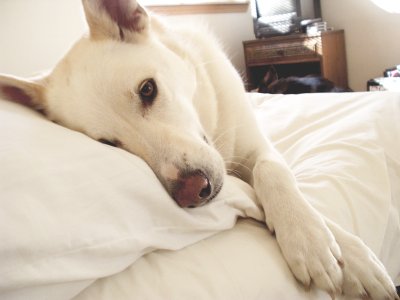Cannabis is used to promote sleep, but it turns out that it can actually disturb sleep

Cannabis, which has been legalized in several states in the Netherlands and the United States, is said to 'have the effect of promoting sleep,' and in fact, a survey of cannabis users found that it was used to
Recent cannabis use and nightly sleep duration in adults: a population analysis of the NHANES from 2005 to 2018 | Regional Anesthesia & Pain Medicine
https://rapm.bmj.com/content/early/2021/11/24/rapm-2021-103161
Large Study Links Cannabis Use to Sleep Disruption, Especially Among Heavy Users
https://www.sciencealert.com/large-study-links-cannabis-smoking-to-sleep-disruption-especially-among-heavy-users
It is said that humans need 7 to 9 hours of sleep a day, and even if the sleep time is shorter or longer than this, various problems will occur. Some people who can't sleep well use sleep-inducing agents prescribed by their doctor, but some people may take cannabis to help them sleep.
Insomnia is one of the most common motivations for starting to take cannabis and its active ingredient, cannabinoids, but overall evidence of the claim that cannabis promotes sleep, as pointed out in existing studies, is general. Because of their inconsistencies and poor quality, American research teams used data from the National Health and Nutrition Examination Survey (NHANES) collected between 2005 and 2018 to determine if cannabis really promotes sleep. I investigated.
In the NHANES survey, participants answered age, race, gender, educational background, average weekly working hours, sleep time, sleep quality, and frequency of cannabis use. All sleep times are for weekday sleep time, and are classified into 'short (less than 6 hours)', 'moderate (6 hours or more and less than 9 hours)', 'long (9 hours or more)', and 'difficulty falling asleep'. The quality of sleep was also investigated, such as 'whether or not you were awake', 'have you slept too much in the past two weeks', and 'have you consulted with a doctor about sleep?'
In addition, regarding cannabis use, if you have taken cannabis in the past 30 days, it is defined as 'cannabis user', and 3132 (about 14.5%) out of a total of 21,729 subjects were cannabis users. .. After that, cannabis users were classified as 'mild users (less than 20 times in 30 days)' or 'severe users (more than 20 times in 30 days)' according to the number of times they have been used in the past 30 days.

An analysis of the association between sleep and cannabis showed that mild users were 34% more likely than non-users to report short sleep of less than 6 hours, even taking into account potentially relevant factors, for 9 hours or more. The rate of reporting long sleep was also found to be 56% higher. In addition, cannabis users also reported that 'it is difficult to sleep', 'sleep is interrupted', 'sometimes I slept too much in the past two weeks', and 'consulted with a doctor about sleep'. is.
In addition, the research team found that 'severe cannabis users are at greater risk of extreme nighttime sleep compared to their users, which is the difference between cannabis frequency and sleep time. the
While the study shows that cannabis use can have a negative effect on sleep, the exact effects of cannabis and chemicals on sleep remain unclear. The study is also observational, and other underlying demographic and health factors may be related to the outcome.

In the United States, lack of sleep is a major public health concern, with almost half of adults reporting daytime sleepiness. 'Sleep deprivation in modern times increases public health problems, and sleep deprivation can be a major risk factor for cannabis use,' said the researchers: 'increased cannabis use' and 'progression of sleep disorders.' Not only does it last the cycle, but sudden quitting cannabis can even have a further negative impact on sleep structure and quality. '
Related Posts:
in Science, Posted by log1h_ik







